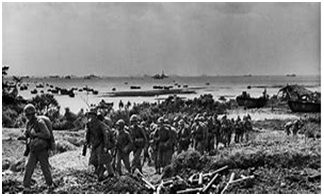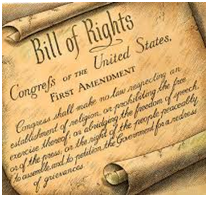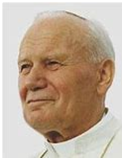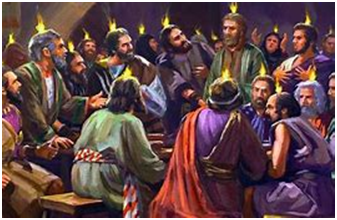[vc_row][vc_column][vc_single_image image=”949″ img_size=”full” alignment=”center”][vc_custom_heading text=”“A Piece of My Mind”” font_container=”tag:h1|font_size:50px|text_align:center|color:%232633ef” google_fonts=”font_family:Bitter%3Aregular%2Citalic%2C700|font_style:700%20bold%20regular%3A700%3Anormal”][vc_custom_heading text=”June 2020 Newsletter” font_container=”tag:h1|font_size:30px|text_align:center|color:%232633ef” google_fonts=”font_family:Bitter%3Aregular%2Citalic%2C700|font_style:400%20regular%3A400%3Anormal”][/vc_column][/vc_row][vc_row][vc_column width=”2/3″][vc_column_text]
Advancing Christian Faith and Values,
Defending Religious Liberty for All,
Supporting Civility and the Common Good
through Preaching, Teaching, Writing, Activism and Reasoned Conversations
www.donaldshoemakerministries.com[/vc_column_text][/vc_column][vc_column width=”1/3″][vc_single_image image=”1304″ img_size=”full” alignment=”center”][/vc_column][/vc_row][vc_row][vc_column][vc_column_text]
Remembering June, 1945 – 75 years ago
World War 2 in Europe had ended. The elation of many American troops was tempered by the realization that thousands would be shipped to the Pacific Theater for the invasion of Japan.
The U.S. victory on Okinawa proved to be the bloodiest battle of the Pacific war. American dead totaled over 12,000 and Japan lost 110,000, including mass suicide when the victory of U.S. troops was seen as certain.
These horrific losses plus signs of Japanese determination caused U.S. military leaders to expect massive casualties when the invasion of Japan finally took place. But it was not to be…[/vc_column_text][/vc_column][/vc_row][vc_row][vc_column][vc_column_text]
 Message for Pentecost Sunday (May 31)
Message for Pentecost Sunday (May 31)
When the Holy Spirit Redirected Priorities
So when they [the apostles whom Jesus had chosen] had come together, they asked him, “Lord, will you at this time restore the kingdom to Israel?”
[Jesus] said to them, “It is not for you to know times or seasons that the Father has fixed by his own authority. But you will receive power when the Holy Spirit has come upon you, and you will be my witnesses in Jerusalem and in all Judea and Samaria, and to the end of the earth.” – Acts 1:6-8 New English Version
“Life after the Coronavirus” will not be like “Life before the Virus.” Church priorities and ministries (what we should do and how we should do it) will not be the same.
Now put yourself with Jesus’ disciples, who were with him after his resurrection and before his ascension (return to Heaven). What will God’s work in the world be once Jesus is no longer with them? They need answers, because “Life after Jesus’ Ascension and the Day of Pentecost” will not be as before.
Jesus’ followers had one overriding question: “Lord, is it NOW, finally, that you will restore the kingdom to Israel? We’ve watched you and listened to you. We’ve gone through the pain of your death and, now, the joy of being with you in your resurrection. NOW will we see the kingdom restored with Israel having her rightful place in it?” *
Jesus’ answer must have disappointed them. It certainly will refocus them if they listen. Without zeroing out God’s promises to Israel, Jesus zeros in on “NOW”. What is God’s timing when it comes to fulfilling his promises?
Jesus clearly and forcefully told them, “The question of when prophetic events will come to be (‘times’) and the exact nature of these events (‘seasons’)—these are none of your business. Don’t worry about these ‘times and seasons.’ My Father in Heaven has determined them and they are well under his control. Instead, do what I assign you to do, which the Holy Spirit will give you the power to do.”
“Times” (Greek word: chronos) refers to the sequence of events (this, then this, then that). “Seasons” (kairos) refers to the significance of the events. If I say, “It is 12:00 noon” that’s a chronos moment, a tick of the clock. But if I say, “It’s going down today at hi-noon” that’s a kairos moment–something significant is going to happen. **
When the Holy Spirit is poured out upon the waiting disciples at Pentecost, it will not be to enlighten them about the future, either its times or details. Instead, the Spirit will be given so they will have the power to do a task—to bear witness to Jesus—his life and ministries, his death and resurrection, his teachings—throughout the world beginning in Jerusalem (verse 8).
How often have you heard preaching that is very certain about “the times and the seasons”? If we listened to a lot of “Bible prophecy” teaching throughout the Twentieth Century and up till now, we might think Jesus should have just saved his breath. Many teachers on prophecy talk confidently about when prophecies will be fulfilled and what the exact sequence of things will be.
 When He shall come with trumpet sound
When He shall come with trumpet sound
I’ll leave e’er Satan stalks the ground.
The times and seasons will unfold
Just like our charts have long foretold.
We have divided our churches and judged the orthodoxy of other Christians over how we think the “times and seasons” will unfold.
• “Pre-tribulationists” believe that Jesus will return and remove the saints before the Great Tribulation occurs. After the Tribulation he will return dramatically to end human history as we know it and usher in his kingdom (the two “returns” together are the “Second Coming of Christ”—Second Coming A and Second Coming B, if that’s reasonable).
• “Mid-tribulationists” believe that the saints will be removed from earth in the middle of the Great Tribulation. The first half is bad, but “you ain’t seen nuthin’ yet” – God is saving his fiercest wrath against evil for the second half. After this, Jesus will return to set up his kingdom.
• The “Pre-wrath” view teaches that believers will go through the Tribulation almost till its end, and be removed just before God’s fierce wrath is unleashed against evil. They will then return with Christ.
• “Post-tribulationists” believe there is only one climactic “Second Coming” event at the end of the Great Tribulation.
• Some simply teach a “second coming” without trying to fit it into other details (for example, they may not relate it to a Great Tribulation era).
Another opinion, the “partial rapture” view, believes that only Christians who are “ready” (they have reached a particular level of spirituality, or have had certain experiences, or belong to the correct church) will be raptured to be with Jesus when he first appears. The Christians left behind (the “have not’s”) will have to go through the Tribulation, which thus becomes sort of a Purgatory for them. This view isn’t widely held, but those who do hold it are quite sure of their own righteousness and don’t mind saying so.
What can we say about all this? In my opinion, the whole debate is a
great tribulation. It reflects the assumption that we can know “times and seasons” details which Jesus said we cannot know.
I’m opposed to churches and denominations setting forth prophetic timetables and using them as litmus tests to say who’s in and who’s out. I’m opposed to how the dogmatism stifles honest study and open debate.
The sooner we can rid ourselves of doctrinal statements that split hairs on prophecy and try to map it out, the better. My right hand of fellowship (if we can still extend our right hands after the coronavirus) is ready to accept you, whether you are a “pre-tribber”, “post-tribber” or whatever. Please accept me. Let’s study together and learn prophecy to the extent it can properly be known (Deuteronomy 29:29). And let’s join our voices in the prayer:
“Even so, come quickly, Lord Jesus!”
* John Stott, following Calvin, believed that the disciples’ whole question revealed several faulty notions about the Kingdom of God, not just a timing problem about Israel’s role (The Message of Acts, p. 43). I limit their error to the matter of “timing.” This reveals another major rift in how Evangelicals understand prophecy. Does Israel have a distinct future in the Kingdom (my view) or are promises to Israel spiritualized in the kingdom (common Reformed view)?
** Stott explains “times and seasons (dates)” differently: “times” are “critical moments” and “seasons” are the orderly development of God’s plan. F.F. Bruce explains the words much as I do, but notes that the meaning is found in the words as a pair, not separately (The Book of Acts, p. 35).[/vc_column_text][/vc_column][/vc_row][vc_row][vc_column][vc_column_text]
Religious Liberty Vigilance –
Religious Liberty and the “Right to Assemble”
 “Congress shall make no law respecting an establishment of religion, or prohibiting the free exercise thereof, or abridging the freedom of speech, or of the press; or the right of the people peaceably to assemble, and to petition the Government for a redress of grievances.” – 1st Amendment
“Congress shall make no law respecting an establishment of religion, or prohibiting the free exercise thereof, or abridging the freedom of speech, or of the press; or the right of the people peaceably to assemble, and to petition the Government for a redress of grievances.” – 1st Amendment
Notice two enumerated rights in the First Amendment: (1) free exercise of religion and (2) the right peaceably to assemble.
Religious freedom and the right to assemble allow individual believers to assemble into groups of believers. Hence, we have churches, synagogues, and mosques. These groups often establish ministries to further their religious ideals—schools especially. To force these groups or ministries to function in conflict to their ideals is to violate both their free exercise of religion and their right to assemble.
This recently happened in Ireland, where 90% of private schools are Catholic:
The Republic of Ireland’s Workplace Relations Commission has decided that an atheist child was discriminated against by his Catholic school when students were rewarded for attending a religious ceremony.
The commission ordered the school to pay €5,000 and demanded the school review its policies so it complies with the Equal Status Acts. The school will also have to post a memo of its compliance in a noticeable location within the school.
– Catholic News Agency, May 5, 2020
Rewarding students as an incentive to develop good worship patterns is about as natural a thing for a religious school to do as I can imagine. Yet, in Ireland at least, an individual’s right to practice atheism trumps the right of a religious school to further its own beliefs and practices (a school, by the way, where this student’s family voluntarily chose to enroll him).
In America we see many signs that the religious freedom of individuals is treated as more important than the freedom of religious groups. During the “Coronavirus crisis” the ability of religious groups to gather is highly restricted, even if they would practice specified safety measures.
Los Angeles County’s latest “Safer at Home Order” (May 13, 2020) says this:
Staff of organizations or associations, including faith-based organizations, may gather in a single space for the sole purpose of preparing and facilitating live-stream or other virtual communications with their members, including worship services, provided that the staff gathering is limited to 1O people or fewer and the Social (Physical) Distancing Protocol …is observed.
Well, thanks. This same order (May 13) lists 24 categories of essential businesses that can be open. But the need of a church to gather is overlooked.
The Christian faith teaches that God calls us into union with one another, not to be Christians in individualistic isolation.
They devoted themselves to the apostles’ teaching and to fellowship, to the breaking of bread and to prayer. All the believers were together and had everything in common. Every day they continued to meet together in the temple courts. They broke bread in their homes and ate together with glad and sincere hearts, praising God… (from Acts 2:42-47)
On the first day of the week we came together to break bread… (Acts 20:7)
We were all baptized by one Spirit so as to form one body…” (1 Cor. 12:13)
Let us consider how we may spur one another on toward love and good deeds, not giving up meeting together, as some are in the habit of doing, but encouraging one another… (Hebrews 10:24-25)
Churches cannot claim religious discrimination under current law, so long as a restriction is applicable to all and neutral toward religion. However, the more exceptions an order grants, the more difficult it is for government to escape the charge that it is discriminating against religion.[/vc_column_text][/vc_column][/vc_row][vc_row][vc_column][vc_column_text]
 May 18, 2020 – Centennial of One of the
May 18, 2020 – Centennial of One of the
20th Century’s Greatest Men
Karol Józef Wojtyla was born in Wadowice, a humble town in the south of Poland. Much of his life was lived in the crucible of tribulations. He carried his cross under the two antichrist systems of Nazism and Communism.
 Karol Wojtyla helped keep his Polish culture alive while Poland was under Nazi occupation by establishing the Rhapsodic Theater where his acting skills were put to use in clandestine performances.
Karol Wojtyla helped keep his Polish culture alive while Poland was under Nazi occupation by establishing the Rhapsodic Theater where his acting skills were put to use in clandestine performances.
He became a priest and then a bishop. George Weigle tells how the Polish Communists had veto power over appointments to the bishopric, and one party official was determined to veto every nominee until Wojtyla’s name was put forth, because he thought he could control him. Little did he know…
Elevated to the papacy in 1978, he was one of God’s instruments in bringing down the Iron Curtain and ending Communist domination of Eastern Europe, including his beloved Poland. I remember watching the installation service (or whatever it’s called in Catholic circles) in 1978. As Polish Communist officials sat at the front in St. Peter’s, I wondered what was going through their minds. “We’re really in for it now!” I thought.
I’m not a Roman Catholic, but I am a student of modern Western history. I’m grateful to God for a man hardened and seasoned by oppressive systems who rose to a place where his voice would be heard and his values from a true Christian Humanist perspective (the dignity of the human person created in the image of God) would help usher in a new era.
As many liberated nations today settle into new oppressions and anti-human ideologies, it is both good and necessary for us to remember this legacy.
ADDITIONAL READING:
• George Weigle, The End and the Beginning: Pope John Paul II—The Victory of Freedom, the Last Years, the Legacy. Image Books, 2010.
• Donald P. Shoemaker, “One Evangelical’s Gratitude for John Paul II,” Guest Editorial, Long Beach Press Telegram, April 9, 2005 (accessible at www.donaldshoemakerministries.com)[/vc_column_text][/vc_column][/vc_row][vc_row][vc_column][vc_column_text]
 Bible Insight –
Bible Insight –
What’s So Great about “The Great Commission”?
Then Jesus came to them [his disciples] and said, “All authority in heaven and on earth has been given to me. Therefore go and make disciples of all nations, baptizing them in the name of the Father and of the Son and of the Holy Spirit, and teaching them to obey everything I have commanded you. And surely I am with you always, to the very end of the age.” – Matthew 28:16-20
Christians rightly draw on many, many scriptures for direction. High on the list are the two Great Commandments: love God with all your heart and love your neighbor as yourself (Matthew 22:37-40). But no assignment from Jesus gets more attention for “missional direction” than “The Great Commission.”
What makes “The Great Commission” so great?
1. Jesus made a GREAT AFFIRMATION about himself.
He makes the astounding claim, “All authority in heaven and on earth has been given to me!” Either this is the boast of a self-deceived self-promoter, or it is a claim to be taken seriously. The church takes it seriously.
The Apostle Paul sets forth this same claim about Jesus in what was probably a “praise chorus” sung in Christian gatherings. Jesus humbled himself obediently to death on a cross.
Therefore God exalted him to the highest place
and gave him the name that is above every name,
that at the name of Jesus every knee should bow… (Philippians 2:9-10)
If Jesus is who he claimed to be, his instructions need to be obeyed.
2. Jesus gave a GREAT ASSIGNMENT to his followers.
Now, I’m going to be a bit picky here, because this assignment is often misunderstood. For example, it’s commonly taught that Jesus gave four commands: “Go, make disciples, baptize, and teach.” If this is so, then “make disciples” pretty much equals “lead people to Jesus” (then baptize and teach them). Discipling = Evangelism.
But that’s not what Jesus commanded. In fact, THERE IS ONLY ONE COMMAND IN THE GREAT COMMISSION—“MAKE DISCIPLES”. Around this one imperative verb are three participles (“going, baptizing, teaching”) that tell us HOW TO OBEY THIS ONE COMMAND.
“Going” – We can talk about following Jesus all we want, but if we do not penetrate the world around us, we will never make disciples for Jesus.
“Baptizing” – The New Testament assumes that one who believes the Gospel will be baptized. In fact, “unbaptized Christian” is an oxymoron.
Baptism is Trinitarian—it confesses God’s work in our salvation. God the Father loved us, God the Son died for us, and God the Holy Spirit empowers us to faith and good works.
Baptism is in water—a fitting mode to depict washing sins away (Acts 22:16).
What does our baptism declare to the church and to the world?
• “I hereby confess Jesus as Lord and I cross the line to be on Jesus’ side.”
• “I have moved from the old life into the new.”
• “I’m now a citizen of God’s Kingdom, a member of his family.”
• “My sins are washed away—I stand forgiven!”
• “The Holy Spirit has been given to me”
• “I’m willing to follow Jesus in obedience and suffering.”
“Teaching” – The baptized convert is to be instructed in all the commands of Jesus. Baptism takes a few moments—one single step in being a disciple. Teaching all Jesus commands is a life-long process—continual steps in becoming a disciple. Thus we never “arrive” at full discipleship in this life—we are always “Pilgrims in Progress.”
How does Jesus direct our lives? A few points among many:
• “Follow me in baptism.”
• “Accept the authority of the Old Testament just as I do.”
• “Keep God’s law in its depth, not just on the surface.”
• “Love God and love your neighbor.”
• “Show regard for all people, not just to other followers of mine.”
• “Get down where the people are. Touch the leper, feed the hungry, clothe the naked, bind the wounded.”
• “Keep the Supper I established for you, in remembrance of me.”
• “Watch and pray. Be prepared when temptations come and face them as I did.”
• “I will return at an unknown hour. Be faithful and prepared.”
3. Jesus speaks GREAT ASSURANCE to us as we fulfill this assignment.
Jesus will be with his church as we do the task he calls us to do—empowering us, encouraging us, walking with us, helping us when we face persecution.
He is present when we are baptized in his name and as we face temptations and struggle to be his disciples and to lead others to be his disciples.
He walks beside us as we walk through life’s greatest challenges and sorrows. He assures us he knows the path, for he has walked it before.
He is there to serve his people not just at the start but until the end of the age.
When through the deep waters I call you to go,
the rivers of sorrow shall not overflow;
for I will be with you, your troubles to bless,
and sanctify to you your deepest distress.
– “How Firm A Foundation” (1787, authorship uncertain). Originally sung to the tune “ADESTES FIDELIS” [“O Come, All Ye Faithful”], it is usually sung today to the tune “FOUNDATION.”[/vc_column_text][/vc_column][/vc_row][vc_row][vc_column][vc_column_text] Grace Community Church is on-line during the present coronavirus limitations. There are no gathered worship services for the time being. Watch and participate in the Sunday services during the service times at 9:30 and 11:00 PDT, or anytime afterward.
Grace Community Church is on-line during the present coronavirus limitations. There are no gathered worship services for the time being. Watch and participate in the Sunday services during the service times at 9:30 and 11:00 PDT, or anytime afterward.
www.gracesealbeach.org
Pentecost Sunday – May 31, 2020
Remembering the Outpouring of the Holy Spirit
 When the day of Pentecost came, they were all together in one place. Suddenly a sound like the blowing of a violent wind came from heaven and filled the whole house where they were sitting. They saw what seemed to be tongues of fire that separated and came to rest on each of them. All of them were filled with the Holy Spirit and began to speak in other tongues as the Spirit enabled them. – Acts 2:1-4 NIV
When the day of Pentecost came, they were all together in one place. Suddenly a sound like the blowing of a violent wind came from heaven and filled the whole house where they were sitting. They saw what seemed to be tongues of fire that separated and came to rest on each of them. All of them were filled with the Holy Spirit and began to speak in other tongues as the Spirit enabled them. – Acts 2:1-4 NIV
I invite you to listen to my Pentecost sermon (2017) at Grace Church –
“Come Holy Spirit” (Acts 2:1-42)
Simply go to www.gracesealbeach.org and click “Sermons” under “Resources.”
You will see my name under “Sermons by speaker.”
Website: www.donaldshoemakerministries.com
Contact me at: donaldshoemakerministries@verizon.net[/vc_column_text][/vc_column][/vc_row]

